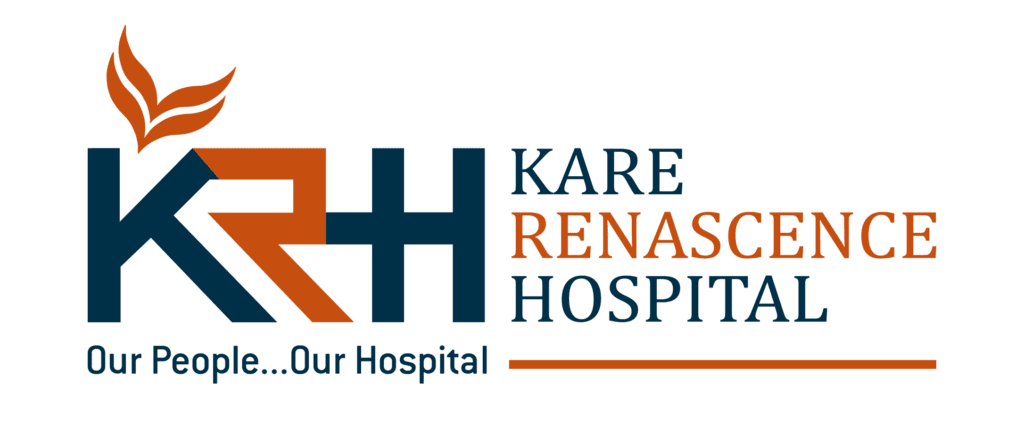Risk factors that can increase your risk of high blood pressure include health conditions, your lifestyle, and your family history.
Some of the risk factors for high blood pressure cannot be controlled, such as your age or family history. But you can take steps to lower your risk by changing the factors you can control.
What are conditions that increase my risk for high blood pressure?
Some medical conditions can raise your risk for high blood pressure. If you have one of these conditions, you can take steps to manage it and lower your risk for high blood pressure.
Elevated Blood Pressure
Elevated blood pressure is blood pressure that is slightly higher than normal. High blood pressure usually develops over time. Having blood pressure that is slightly higher than normal increases your risk for developing chronic, or long-lasting, high blood pressure in the future.
If your blood pressure is between 120/80 mmHg and 129/80 mmHg, you have elevated blood pressure. Learn more about how blood pressure is measured.
You can take steps to manage your blood pressure and keep it in a healthy range.
Diabetes
About 6 out of 10 of people who have diabetes also have high blood pressure.1 Diabetes causes sugars to build up in the blood and also increases the risk for heart disease.
What behaviors increase risk for high blood pressure?
Your lifestyle choices can increase your risk for high blood pressure. To reduce your risk, your doctor may recommend changes to your lifestyle.
The good news is that healthy behaviors can lower your risk for high blood pressure.
Unhealthy Diet
A diet that is too high in sodium and too low in potassium puts you at risk for high blood pressure.
Eating too much sodium—an element in table salt—increases blood pressure. Most of the sodium we eat comes from processed and restaurant foods. Learn more about sodium and high blood pressure.
Not eating enough potassiumexternal icon—a mineral that your body needs to work properly—also can increase blood pressure. Potassium is found in many foods; bananas, potatoes, beans, and yogurt have high levels of potassium.
Physical Inactivity
Getting regular physical activity helps your heart and blood vessels stay strong and healthy, which may help lower your blood pressure. Regular physical activity can also help you keep a healthy weight, which may also help lower your blood pressure.
Obesity
Having obesity is having excess body fat. Having obesity or overweight also means your heart must work harder to pump blood and oxygen around your body. Over time, this can add stress to your heart and blood vessels.
Obesity is linked to higher “bad” cholesterol and triglyceride levels and to lower “good” cholesterol levels. Learn more about cholesterol.
In addition to high blood pressure, having obesity can also lead to heart disease and diabetes. Talk to your health care team about a plan to reduce your weight to a healthy level.
Too Much Alcohol
Drinking too much alcohol can raise your blood pressure.
- Women should have no more than one drink a day.
- Men should have no more than two drinks a day.
Tobacco Use
Tobacco use increases your risk for high blood pressure. Smoking can damage the heart and blood vessels. Nicotine raises blood pressure, and carbon monoxide—which is produced from smoking tobacco—reduces the amount of oxygen that your blood can carry.
What other factors increase my risk for high blood pressure?
Family members share genes, behaviors, lifestyles, and environments that can influence their health and their risk for disease. High blood pressure can run in a family, and your risk for high blood pressure can increase based on your age and your race or ethnicity.
Genetics and Family History
When members of a family pass traits from one generation to another through genes, that process is called heredity.
Genes likely play some role in high blood pressure, heart disease, and other related conditions. However, it is also likely that people with a family history of high blood pressure share common environments and other potential factors that increase their risk.
The risk for high blood pressure can increase even more when heredity combines with unhealthy lifestyle choices, such as smoking and eating an unhealthy diet.
Family health history is a record of the diseases and health conditions people in your family have had. Family health history is a useful tool for understanding health risks and preventing disease. To help people collect and organize information on their family history, CDC’s Office of Public Health Genomics collaborated with the Surgeon General and other federal agencies to develop a Web-based tool called My Family Health Portrait.
Source link of above content
Risk factors related to who you are
Common hereditary and physical risk factors for high blood pressure include:
- Family history If your parents or other close blood relatives have high blood pressure, there’s an increased chance that you’ll get it, too.
- Age The older you are, the more likely you are to get high blood pressure. As we age, our blood vessels gradually lose some of their elastic quality, which can contribute to increased blood pressure. However, children can also develop high blood pressure.
- Gender Until age 64, men are more likely to get high blood pressure than women are. At 65 and older, women are more likely to get high blood pressure.
- Race African-Americans tend to develop high blood pressure more often than people of any other racial background in the United States. It also tends to be more severe in African Americans, and some medications are less effective in treating HBP in blacks.
- Chronic kidney disease (CKD) HBP may occur as a result of kidney disease. And, having HBP may also may also cause further kidney damage.
Modifiable risk factors
These are the risk factors you can change to help prevent and manage high blood pressure, including:
- Lack of physical activity: Not getting enough physical activity as part of your lifestyle increases your risk of getting high blood pressure. Physical activity is great for your heart and circulatory system in general, and blood pressure is no exception.
- An unhealthy diet, especially one high in sodium: Good nutrition from a variety of sources is critical for your health. A diet that is too high in salt consumption, as well as calories, saturated and trans fat and sugar, carries an additional risk of high blood pressure. On the other hand, making healthy food choices can actually help lower blood pressure.
- Too little potassium in your diet:Potassium helps balance the amount of sodium in your cells. Potassium causes the smooth muscle cells in your arteries to relax, which lowers blood pressure.
- Being overweight or obese: Carrying too much weight puts an extra strain on your heart and circulatory system that can cause serious health problems. It also increases your risk of cardiovascular disease, diabetes and high blood pressure.
- Drinking too much alcohol: Regular, heavy use of alcohol can cause many health problems, including heart failure, stroke and an irregular heartbeat (arrhythmia). It can cause your blood pressure to increase dramatically and can also increase your risk of cancer, obesity, alcoholism, suicide and accidents.
- Sleep apnea: Obstructive sleep apnea may increase risk of developing HBP and is common in people with resistant hypertension.
- High cholesterol: More than half of people with HBP also have high cholesterol.
- Diabetes: Most people with diabetes also develop HBP.
- Smoking and tobacco use: Using tobacco can cause your blood pressure to temporarily increase and can contribute to damaged arteries. Secondhand smoke, exposure to other people’s smoke, also increases the risk of heart disease for nonsmokers.
- Stress: Stress is not necessarily a bad thing in and of itself. But too much stress may contribute to increased blood pressure. Also, too much stress can encourage behaviors that increase blood pressure, such as poor diet, physical inactivity, and using tobacco or drinking alcohol more than usual. Socioeconomic status and psychosocial stress can affect access to basic living necessities, medication, healthcare providers, and the ability to adopt healthy lifestyle changes.
Source link of above content
- Non-steroidal Anti-inflammatory Drugs (NSAIDs): Ibuprofen (Advil, Motrin, Ibuprofen) can cause marked worsening of existing hypertension or development of new high blood pressure. It can also cause damage to the kidneys, worsening of heart failure, and even heart attack or stroke. Ibuprofen is a member of the class of drugs called NSAIDs, which includes naproxen (Aleve, Naprosyn and Anaprox), sulindac (Clinoril), diclofenac (Voltaren), piroxicam (Feldene), indomethacin (Indocin), Mobic, Lodine and celecoxib (Celebrex).
- Cough and Cold Medications (Sudafed and other brands that contain pseudoephedrine and phenylephrine):Cough and cold medicines frequently contain decongestants such as pseudoephedrine and phenylephrine. These medications cause your blood pressure and heart rate to rise, by constricting all your arteries, not just those in your nose.
- A diet low in vitamin D:It’s uncertain if having too little vitamin D in your diet can lead to high blood pressure. Researchers think that vitamin D may affect an enzyme produced by your kidneys that affects your blood pressure. More studies are necessary to determine vitamin D’s exact role in high blood pressure. However, talk to your doctor about whether you may benefit from taking a vitamin D supplement.
When preexisting medical conditions cause high blood pressure
A small number of high blood pressure cases are secondary hypertension — high blood pressure that’s caused by another medical condition that was present first. Examples include pregnancy-induced hypertension (PIH), certain heart defects, and kidney disorders. Most often, if the condition causing the high blood pressure can be resolved, the individual’s blood pressure will normalize as well. For a majority of the discussion on this page and throughout this site, we are referring to primary hypertension, high blood pressure that has no identifiable cause. A majority of people with high blood pressure have a form of primary hypertension.
This Information is for educational purposes only and is not intended to replace the advice of your doctor or other health care provider.



